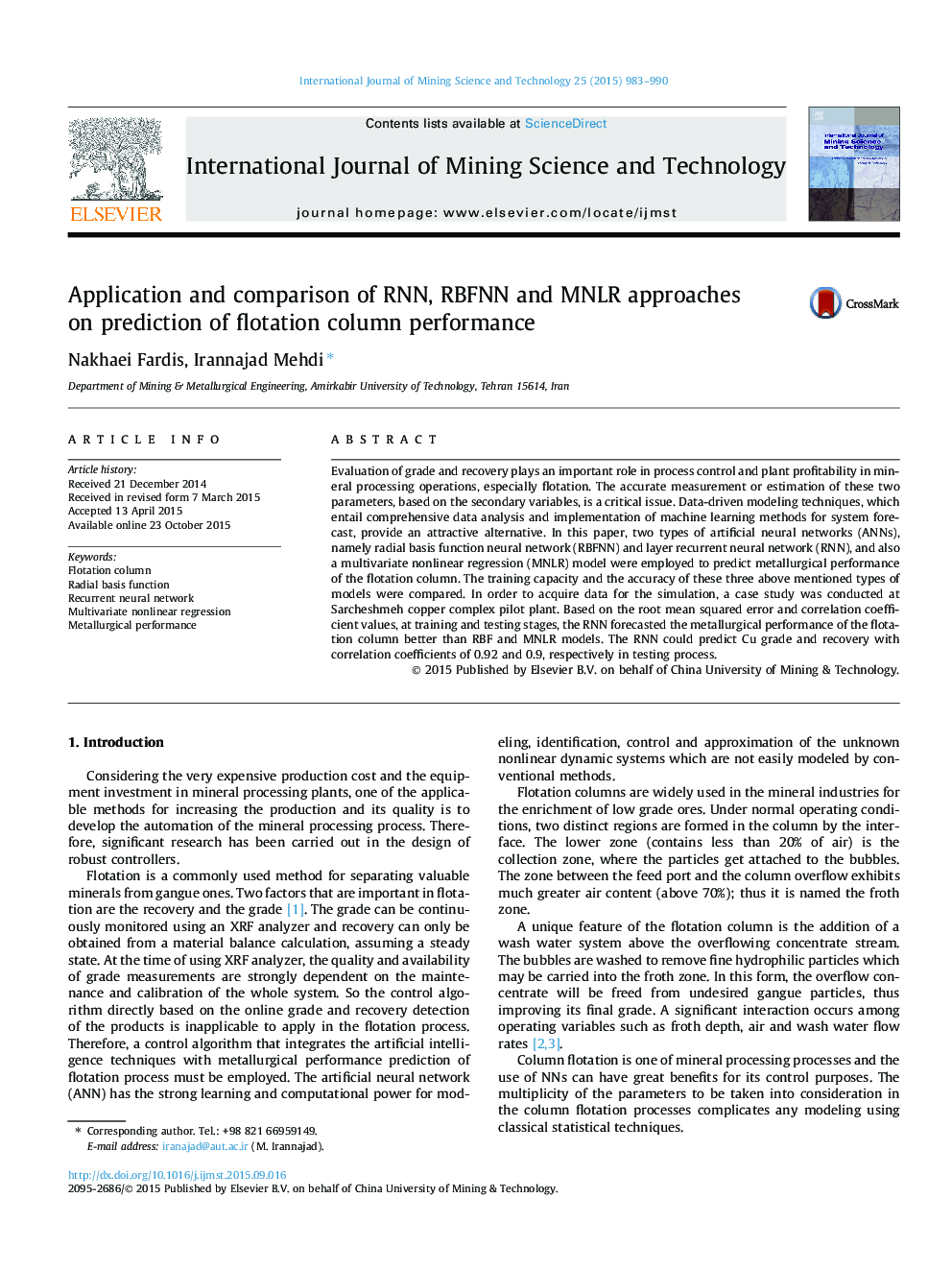| Article ID | Journal | Published Year | Pages | File Type |
|---|---|---|---|---|
| 275081 | International Journal of Mining Science and Technology | 2015 | 8 Pages |
Evaluation of grade and recovery plays an important role in process control and plant profitability in mineral processing operations, especially flotation. The accurate measurement or estimation of these two parameters, based on the secondary variables, is a critical issue. Data-driven modeling techniques, which entail comprehensive data analysis and implementation of machine learning methods for system forecast, provide an attractive alternative. In this paper, two types of artificial neural networks (ANNs), namely radial basis function neural network (RBFNN) and layer recurrent neural network (RNN), and also a multivariate nonlinear regression (MNLR) model were employed to predict metallurgical performance of the flotation column. The training capacity and the accuracy of these three above mentioned types of models were compared. In order to acquire data for the simulation, a case study was conducted at Sarcheshmeh copper complex pilot plant. Based on the root mean squared error and correlation coefficient values, at training and testing stages, the RNN forecasted the metallurgical performance of the flotation column better than RBF and MNLR models. The RNN could predict Cu grade and recovery with correlation coefficients of 0.92 and 0.9, respectively in testing process.
